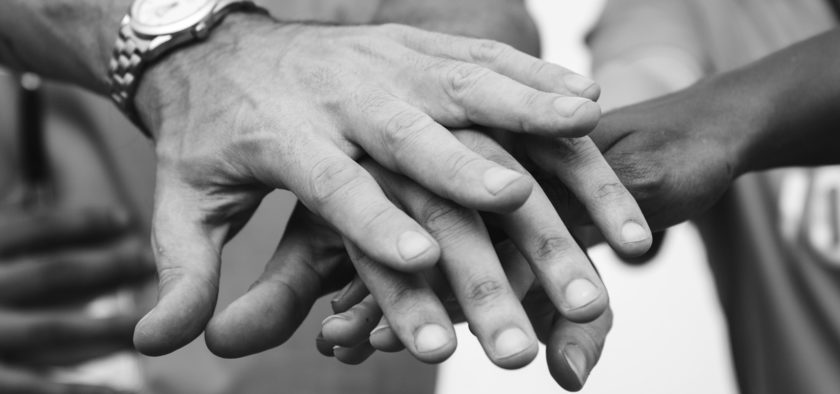Syrett later developed hallucinations and, in 2008, was hospitalised. By the time she was discharged six months later, her diagnosis had been switched to depression with psychosis. The loss of her bipolar diagnosis, one held for 14 years, left her with a sense of grief. “Because I have bipolar” was no longer a way to rationalise her symptoms. “My full understanding [of my illness] and how I framed it in my head had gone, and the support group went too.” She decided not to return, fearful her advice would be dismissed, aware their advice might no longer hold relevance for her.
This time, Syrett didn’t reach out to a support group for fear her diagnosis might shift again. “It had been quite damaging, feeling excluded from a group that offers inclusion to people not usually included in society. Like a double whammy of exclusion almost.”
By 2016, she was diagnosed with a personality disorder (it is not clear that the previous diagnosis of depression with psychosis was reversed as such; rather, a third diagnostic label had now emerged). “My immediate perception was that all of the pain and stress that I and my family and friends had been through, that this wasn’t caused by an illness, that it was caused by me. That was a burden I struggled to carry.”
Now 45, Syrett is especially careful to emphasise that despite her experiences, she isn’t telling me her story to enter an ongoing debate about diagnostic labels in psychiatry; instead she wants to highlight the support needed when a diagnosis changes. Not just for subsequent alterations in treatment and prognosis, but also to help deal with potential employment issues, withdrawal of personal independence payments and the reactions of friends and family.
As Eliza Fricker discovered, revised diagnoses are not just a tumultuous experience for patients; families are profoundly affected, too. Fricker, a Brighton-based illustrator and designer, had an especially close relationship with her mother. Maria had worked in bookshops and libraries all her life. She loved Motown, tapestry and theatre. She once danced in the audience of Top of the Pops with Lenny Henry.
But in her early 60s, Maria insidiously withdrew from the family, stopped caring, and, tellingly, stopped reading. She became incontinent and wore the same soiled coat each day. Diagnoses of depression or dementia were suspected. Fricker would find her mother, previously “passionate, quick-witted and strong”, sitting on neighbours’ walls for hours at a time, staring into space.
“We were always really good as a family, we could talk about everything. When my mum got ill, it just imploded and fell apart. All those little niggles, the quirks, it all unravelled.” Her parents separated after 42 years. Antidepressants and bladder medications were dispensed. At one assessment, a wellbeing counsellor told Fricker that Maria, then aged 65, was “just getting old”. She was finally seen in a memory clinic and a brain scan was ordered.
Fricker was on holiday with her husband and daughter when she received a call. A consultant told her that her mother’s MRI scan had shown a mass pressing on the frontal lobes of the brain, one of the largest tumours he had ever seen. Three years had passed between the onset of her mother’s symptoms and that scan, and although the meningioma was fully resected in a 13-hour operation, Maria was left with permanent behavioural and cognitive changes – she is less empathic and more impulsive now, and remembers little of the past few years. (Fricker wrote her graphic novel, Just Getting Old, partly so her mother could understand this lost time).
Suneet Agarwal, a paediatric haematologist/oncologist at Dana-Farber/Boston Children’s Cancer and Blood Disorders Center, is keen for medics to be sensitive to how disruptive a revised diagnosis can be. “A distressed patient or parental reaction can be unexpected, especially when the physician feels the new diagnosis is ‘better’ or is the result of her or his heroic diagnostic odyssey on behalf of the patient.” And he emphasises that a support group can be a major factor in this reaction: “Physicians should recognise the power and importance of community, especially for patients facing rare diseases. The patient group may have served as their lifeline of information and friendship for years.”
That is something Syrett identifies with. Her hope today is that others can be supported if their diagnosis changes.
“I would have loved a doctor to have thought: if you know your patient well enough to give them a psychiatric diagnosis, I hope you’d know them well enough to anticipate the impact of changing that diagnosis.”
Now she carries lessons from her own experiences to her role as peer researcher in the department of mental health and wellbeing at the University of Glasgow, most recently helping to complete a study of cognitive-based therapy for psychosis. After all of this time, Syrett brings to others the very support that she once lost herself.

